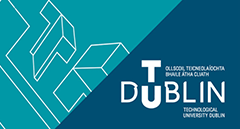Author ORCID Identifier
https://orcid.org/0000-0003-0083-805X
Abstract
It is accepted practice now in higher education in Ireland that assessments should be designed to assess the learning outcomes of a module and the skills needed for professional practice. Due to the current demands and challenges of remote working, employers are looking for a new set of employability skills where graduates can work autonomously and network remotely. Authentic assessments are an opportunity to produce ‘remote work ready’ graduates for this new working environment. However, authentic assessments can be decontextualised if they are designed without considering both academic outcomes and industry/real-world activities. The following practitioner case study reviews the research literature on authentic assessments. An authentic assessment framework design is outlined to bridge the gap between learning and teaching outcomes and industry expectations. This paper describes the redesign of an assessment practice at TU Dublin following a proposed authentic assessment framework design model. It discusses how the proposed model can help practitioners design authentic assessments to enable computing students to develop and articulate their transversal skills, while preparing them for a future of remote working. Recommendations from this case study can inform and shape the current TU Dublin assessment culture and the IMPACT Community of Practice as a sustainable, authentic assessment practice.
Recommended Citation
Higgins, Farrah
(2021)
"Authentic Assessments: Preparing Undergraduate Computing Students for a New Future of Remote Internships,"
Irish Journal of Academic Practice:
Vol. 9:
Iss.
2, Article 6.
doi:https://doi.org/10.21427/01RH-W493
Available at:
https://arrow.tudublin.ie/ijap/vol9/iss2/6
DOI
https://doi.org/10.21427/01RH-W493

